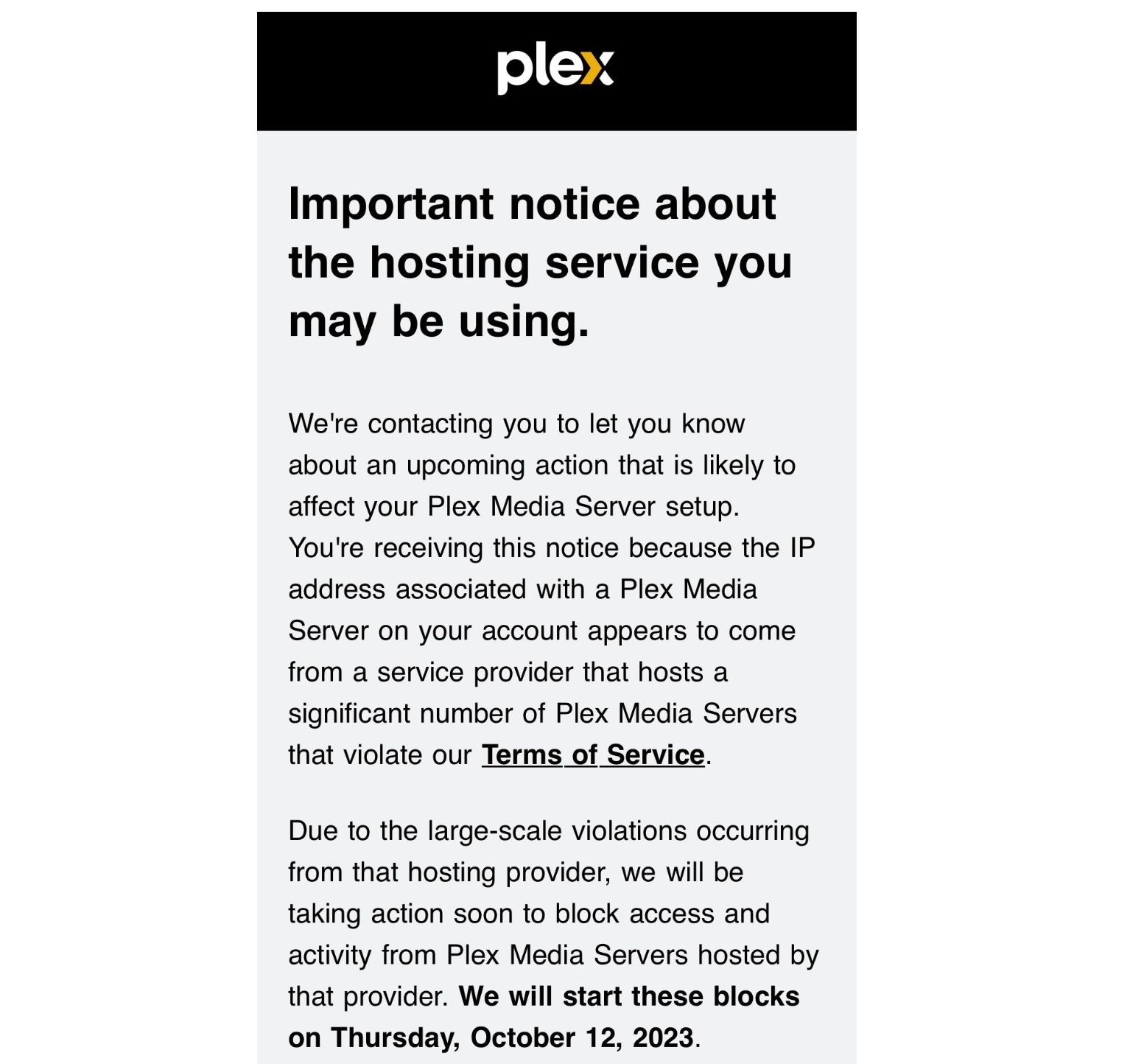 Plex is a multifunctional media software and service that allows users to easily access all their entertainment in one place.
Plex is a multifunctional media software and service that allows users to easily access all their entertainment in one place.
Whether it’s movies, music, TV-shows, or photos, Plex can organize and index, making the content ready to stream on a wide variety of supported devices.
The technology itself is content-neutral and can be used for good, such as curating home videos or enriching purchased media with metadata. The not so good can include building an archive of entirely copyright-infringing content and then sharing via a Plex server with other people, sometimes for a fee.
Rightsholders are aware of this abuse and have taken action in response. Many shared servers have been shut down as a result and, in at least one instance, the owner was tracked down. Despite these enforcement efforts, the problem persists.
Plex is not happy with this abuse. The company is actively working with rightsholders to offer legal entertainment and abuse of its platform only stands in the way. It appears that yesterday Plex decided to take action.
Plex Bans Problematic Host
In an email to customers who run Plex servers at the large German hosting company Hetzner, Plex said that access will be blocked next month. It’s not clear if Hetzner is the only hosting company this applies to, but several customers confirmed that they received the same email.
Plex’s notice doesn’t mention Hetzner by name, nor is piracy cited as the reason. The email simply refers to violations of its Terms of Service.
“You’re receiving this notice because the IP address associated with a Plex Media Server on your account appears to come from a service provider that hosts a significant number of Plex Media Servers that violate our Terms of Service,” the Plex email reads.
“Due to the large-scale violations occurring from that hosting provider, we will be taking action soon to block access and activity from Plex Media Servers hosted by that provider.”

Plex’s blanket hosting provider ban could also affect legitimate customers. Apparently, such a drastic measure is warranted to address the ongoing violations.
TorrentFreak reached out to Plex for more details but the company didn’t immediately reply. The most logical explanation is that this is an effort to deter piracy, by banning one or more hosting providers where this type of abuse is prevalent.
Hetzner can’t comment in detail on the issue but the hosting company is clearly disappointed.
“We can’t say much about this, except that we very much regret the action taken by Plex,” Hetzner’s spokesperson Christian Fitz says.
Sledgehammer Approach
In the Plex forums, many users report that they use Hetzner’s servers for non-infringing uses, including storing their legitimate personal media collections.
“I received this notice, presumably because I have a server on Hetzner. It contains my music library. It has no pirated material. And I don’t share the server with anyone else, I’m the only user,” one commenter writes.
Another Plex user describes it as an “incredibly poor solution”. It essentially punishes a large group of legitimate customers with a “sledgehammer approach” that will lead to a perpetual whack-a-mole.
“Those that are abusing the service will simply move somewhere else and Plex will just end up playing whack-a-mole blocking access to more hosting companies,” the Plex user writes.

VPN Proxy
Interestingly, there are also people say that they don’t use Hetzner to host a Plex server at all. Instead, they use its services as a VPN to shield the location of their actual Plex server. However, that won’t prevent these VPN proxies from being targeted.
While we’re not privy to the exact actions Plex will take, it will likely ban the hosting company’s IP addresses. This means that customers can switch to another provider and use that as a VPN gateway instead.
These and other workarounds are actively being shared on Reddit. This includes the use of a third-party VPN to hide that a server is actually being hosted at Hetzner.
In recent years, copyright holders have repeatedly requested Plex to take more action against piracy. This recent change appears to be yet another step in that direction and, workarounds or not, it likely won’t be the last.





